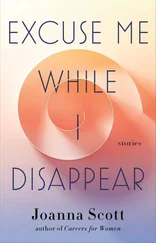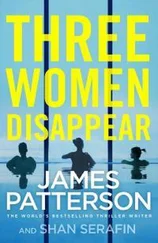He runs the risk of never joining the workforce again, but then rescue arrives in the form of Khayyat, from the neighboring staircase here in Midtpunkt. Khayyat gets his cousin to hire Frederik on a trial basis in his small corner shop in Lyngby. Frederik throws himself into it, trying to prove how dependable he is, how he doesn’t have the least trace of ludomania or brain damage anymore. Once he has a year at the shop on his résumé, he wants to apply for jobs in the school system again. Unless of course his case ends badly.
In some of his e-mails he’s effusively affectionate, in others he’s angry that I want a divorce, and in still others he just tries to understand what happened to us and the marriage we once thought would last the rest of our lives.
Dear Mia,
It’s really you who disappeared this past year. Not me. You.
The Mia I married was warm and loving. She engaged other people; she wanted to be a teacher so she could help at-risk children. She was so full of empathy and thoughtfulness for her friends, her family, and her students.
But since my operation, you’ve come to regard all of us as if we’re no more than neurochemistry — mere brains in which everything is rigidly determined beforehand.
Yet brains are flexible! What we experience, what we think and feel, what we read — all these things leave their traces on the brain, traces that can be as hard to alter as if we were born with them.
That’s what happened to you. My brain’s recovered, so that I am once more myself. But after all you’ve been through, how will you ever become your old self again?
Here in Lyngby, the leaves are falling down. I walk along the lanes and grieve for the warmhearted wife I watched disappear.
Much love,
Frederik
• • •
Bernard’s car is so tidy; ours never looked like this. By itself it doesn’t really matter, but every hour that he and I spend together, I notice these little differences that tell me we’re doing absolutely the right thing.
Bernard is also much more daring when it comes to new music. We go to concerts by weird unknown bands, while for a long time Frederik’s been content to play the same old LPs over and over again. It’s the way Bernard breathes, without blowing loudly through his nose, the way he can actually tell the difference between my blouses. And in bed, the attentiveness and love of adventure that shine through every minute we’re together are in full blossom. There’s no question I’ve met the man I’ve dreamt of for as long as I can remember.
So who cares that Bernard didn’t get this way until after his and Lærke’s accident. I can no longer see that it makes any difference.
• • •
Though we both told our families that we want divorces, there’s still a lot of juggling we need to do to keep their daily lives functioning, and so make the breakups as easy on them as possible.
Bernard’s moved out of his lovely house in Brede, and his in-laws have moved in to take care of Lærke. That also lets them spend a lot of time with the twins, who’ve just begun gymnasium.
Yet it’s only a temporary solution. Bernard will probably move back in with the boys soon, and Lærke will enter an institution nearby, where he says he’ll visit her every day. He’ll never stop seeing her. He just needs to have a life of his own.
But it caught Lærke completely off guard to hear that Bernard missed having an equal partner in his marriage. The doctor’s prescribed her some sedatives, yet she still weeps and talks about him all day long at the handicapped center. Bernard’s had long discussions with her doctor and nurses about how to make everything as good as possible for her, and they’re full of advice, having encountered this situation hundreds of times before.
And then there are the kids. We knew that if we were ever going to have a good relationship with each other’s offspring, we couldn’t just barge into their lives the day after the breakups. So Bernard hasn’t been over to our apartment yet, and I make sure I’m home every morning when Niklas gets up for school.
Meanwhile, in the middle of this earthquake that’s turning everyone’s life upside down, Bernard and I have been like teenagers: living on cheap food, cheap wine, sex, love, and endless gazing into each other’s eyes. We savor each day in the small student apartment he’s sublet in Nørrebro, Copenhagen’s most bohemian neighborhood.
One afternoon, I’m sitting with Andrea in a café nearby and telling her how happy I am.
“I’ve found the man of my dreams!” I exclaim. “I could live like this forever.”
We have an hour before Bernard meets me here to take me to the opera.
Andrea looks tired. As usual, she isn’t wearing any makeup, and she’s at least a month overdue for a haircut. She’s been telling me how, earlier today, she drove Ian to his fifth appointment for some bronchial problems caused by his paralysis.
“I only wish everything could fall into place for you too,” I say.
She quietly raises her coffee cup. “But everything is already in place for me. That is, if you mean living a good life.”
“Yes, a good life.” I don’t finish my thought. She knows quite well that what I wish for her is my form of happiness — a new man.
She says, “Only in the old days did people think it was critically important for a woman to end up with one man instead of another. It’s the sort of thing that you once would have read in the last chapter of a novel: Ah, she finally chose the doctor instead of the aristocrat. Hurray , you’d say, a happy ending! But now we know that that’s not the key to a good life. It’s a lie, an oppressive delusion.”
“The key isn’t whether you get one man instead of another? And that’s something we know?”
“Yes, it’s an antiquated way of thinking.”
“Then what is the key?”
“Well, happiness can occur when the brain’s level of dopamine and various other neurotransmitters rises. That happens when you have sex, win the lottery, get a new house, that sort of thing. But the levels fall back down a very short time later, and then you’re no happier than before.”
“So you’re saying that if we just think ahead a bit, nothing in life would really matter.”
“No, that’s not at all what I’m saying. Because there exists another form of happiness — when the level of activity in your left frontal lobe exceeds that in your right. This form of happiness doesn’t run dry. On the contrary, you can train it so that it keeps increasing your entire life.”
“So how exactly do you obtain this form of happiness?”
“You get it by doing good deeds, meditating regularly, and dedicating your life to something meaningful. These are all things that neuroscientists have measured and verified.”
“So you meditate and you’re happy.”
“That’s what I do. And I help Ian, and I help my kids. And yes, I’m happy. That’s what’s so brilliant about atheism, I think: it points the way to a worldview that’s infinitely richer and more beautiful than what you’ll find in any religious book. And it points out the most ethical approach to boot.”
And then I ask her something that perhaps I shouldn’t. “So you think I’d be happier in the long run if I went back to Frederik?”
“That’s not something I can really say, of course. Or … no. No, I’m not saying that. I’m saying that I think the difference isn’t as big as you make it out to be. Not as big for your life, anyway.”
• • •
I still wake at night from dreams where I’m in love with Frederik.
He and Niklas and I are on vacation in Greece. We’re having coffee and cake in the broiling sun near some ancient Greek ruins. Frederik wants to tease me, so he sprints down the slope next to the café tables and chairs, knowing that I’ll think it dangerous and won’t like it. But then he starts running too fast and can’t stop and he falls into a deep chasm at the bottom of the slope. I scream and wake up.
Читать дальше
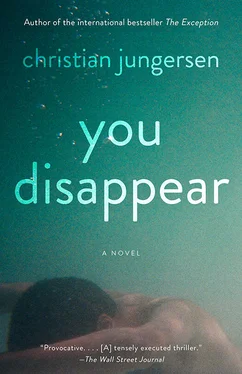
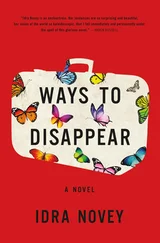
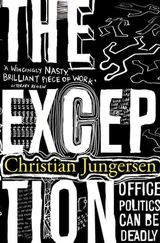
![Ally Carter - [Gallagher Girls 01] I'd Tell You I Love You But Then I'd Have to Kill You](/books/262179/ally-carter-gallagher-girls-01-i-d-tell-you-i-lo-thumb.webp)
